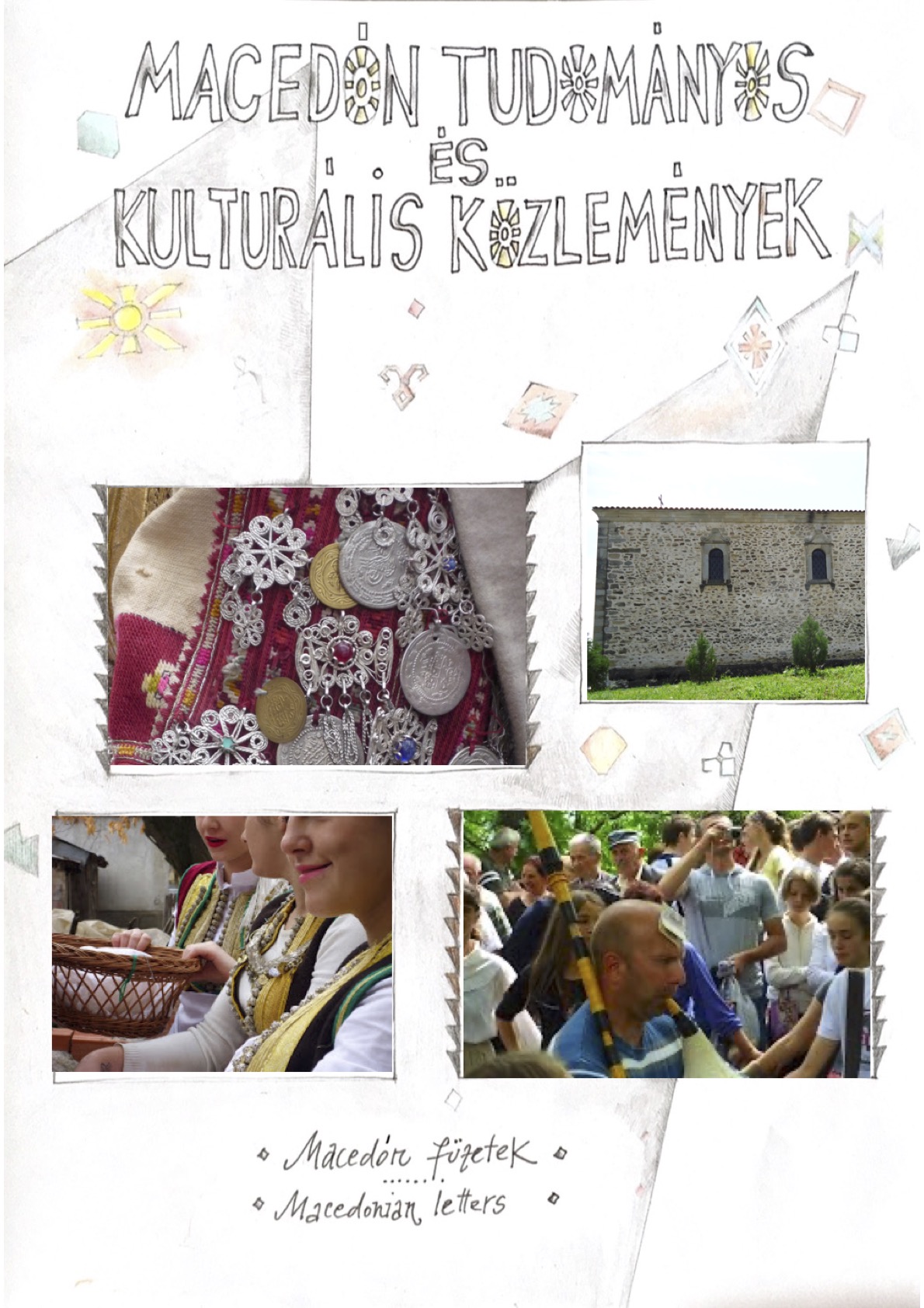Bd. 3 Nr. 2 (2020):
A Macedón Tudományos és Kulturális Közlemények hatodik száma a macedón művészet, történelem és folklór egyes megnyilvánulásaival foglalkozik különféle kontextusokban: színháztörténeti, politikatörténeti jogtörténeti és folklorisztikai cikkek vizsálják a macedón kultúra egyes szegmenseit.
The sixth issue of Macedonian Scientific and Cultural Announcements deals with certain manifestations of Macedonian art, history, and folklore in a variety of contexts: theatrical history, political history, legal history, and folklore related articles examine certain segments of Macedonian culture.
issue.tableOfContents698b1016d9983
Cikkek
-
STOJANOSKA, ANA: ČITAJḰI GO KONTEKSTOT – APLIKATIVNOSTA NA NEOISTORICIZMOT VRZ DRAMITE NA GORAN STEFANOVSKI
3-12.Views:170Absztrakt
A kontextust olvasva – a neohistorizmus alkalmazhatósága Goran Sztefanovszki darabjaira
Goran Sztefanovszki darabjaira azért alkalmazható a neohistorikus módszer, mert közvetlenül kapcsolódik mind a társadalmi, mind a geopolitikai kontextushoz. Minden műve vizsgálható a neohistorikus módszerrel, s ez arra ad példát, hogy hogyan lehet a kortárs elméletek alkalmazásával drámai művet elemezni. Goran Sztefanovszki darabjai, éppen a szerző immanens késztetése miatt, szorosan kapcsolódnak a kulturális mátrixhoz: a szinkronikus modell (Stephen Greenblatt) logikai eszközként jelenik meg értelmezésük, periodizálásuk, sőt kivetítésük folyamatában. A dolgozat célja, hogy a módszer alkalmazhatóságát Goran Sztefanovszki drámáin mutassa be, az életműből vett lehető legtöbb példa alapján.
Abstract
Reading the context – the applicability of neohistoricism to Goran Stefanovski`s plays
Goran Stefanovski's plays are subject to the neo-historical method because it is directly related to both the social and geo-political context. All the plays of his opus can be treated according to the neo-historical method and at the same time they are an example of how a dramatic opus can be analyzed according to the contemporary and current theory. Goran Stefanovski's plays, precisely because of the author's immanent urge, are closely related to the context, the cultural matrix and the synchronic model (offered by Stephen Greenblatt, the founder of the method) is imposed as a logical tool in the process of their interpretation, periodization and even projection. This paper is designed to show the applicability of the method in Goran Stefanovski's drama, through examples from most of his plays.
PDF (Ungarisch)189PDF (Ungarisch)434 -
MACEDÓNIA ÉS AZ EURÓPAI POLITIKA – TÖRTÉNETI ÁTTEKINTÉS II.
13-27.Views:158Macedónia és az európai politika – történeti áttekintés II.
A cikk részletes áttekintést ad az 1991-ben függetlenné vált Macedónia területének politikai vonatkozásairól, függetlenedési törekvéseiről, megvilágítva és tágabb kontextusba helyezve a jelenlegi állam történelmét. A cikk íve az 1875-ben kezdődött, az Oszmán Birodalomtól való függetlenedésért kitört népfelkeléstől napjainkig haladva, módszeresen követi az eseményeket, a nagyhatalmak döntéseinek szemszögéből és a helyi történelem szemszögéből is, egészen a 2019-es névváltoztatásig. Az írás két részben jelenik meg, ebben a számban és a következő számban.
Macedonia and the politics of Europa – an historical overview II.
The article provides a detailed overview of the political aspects and aspirations for independence of the territory of Macedonia, which became independent in 1991, illuminating and placing the history of the current state in a broader context. The arc of the article, from the popular uprising that began in 1875 for independence from the Ottoman Empire to the present day, systematically follows events, both from the perspective of the decisions of the great powers and from the perspective of local history, until the 2019 name change. The article is published in two parts, in the previous issue and in this issue.
PDF (Ungarisch)165 -
MAKEDONYA'DA ÖZEL HUKUK GELIŞIMININ TARIHI VE ÖZELLIKLERI
43-53.Views:151Absztrakt
A magánjog fejlődésének története és jellemzői Macedóniában
A cikk végigköveti Macedónia területén a magánjog alakulását, az ókori előzményektől, vagyis a római jog közvetlen hatásaitól kezdve, a bizánci jogtörténet, a Szerb-Horváth-Szlovén királyság, majd Jugoszláv Királyság, valamint a szocialista Jugoszlávia fejlődési állomásain keresztül, érintve a „Jugoszláv állam” egységességének kérdéseit. Végül a cikk, Macedónia 1991-es függetlenedése óta eltelt időszakot teszi részletes elemzés tárgyává a mai Észak-Macedón köztársaság napjaiig. A cikk írója a római jog nemzetközileg elismert szakértője.
Abstract
History and characteristics of private law development in Macedonia
The article traces the development of private law on the territory of Macedonia, starting from the ancient antecedents, ie the direct effects of Roman law, through the developmental stages of Byzantine law, the Kingdom of Serbs, Croats, and Slovenes, the Kingdom of Yugoslavia and the Socialist Federal Republic of Yugoslavia, discussing even some issues of issues of unity. Finally, the article examines the period since Macedonia's independence in 1991 to the present day in the Republic of North Macedonia. The author of the article is an internationally recognized expert in Roman law.
PDF (Ungarisch)154
